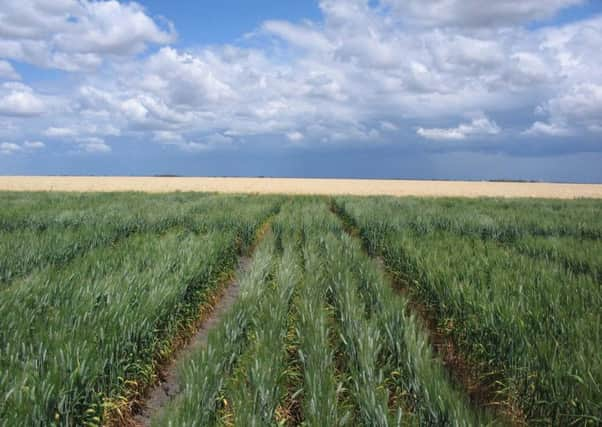Dan Carson: Why you should consider ESG investment


One of the biggest developments in recent times is the importance placed on environmental, social and governance (ESG) factors – and other sustainability considerations – when making investment decisions, compared with capital allocated based on more traditional, geographic or economic considerations.
ESG was perceived as a niche issue and largely reflective of individuals’ ethical views and values rather than a key economic risk driver. However, as a result of wider shifts in underlying drivers, we have reached an inflexion point where ESG has become an economic consideration in its own right. In that sense, sustainability investing is moving from niche to norm.
Advertisement
Hide AdAdvertisement
Hide AdWe are witnessing a seismic shift in attitudes with fund managers, directors and other investment decision-makers now increasingly recognising ESG as a central risk-factor that directly affects long-term returns.
The penny has dropped that issues such as climate change and environmental degradation are real and will have a lasting and profound impact on the fortunes of individual businesses and the global economy. This evolution brings not only risk, but also opportunities for competitive differentiation and growth.
As such, ESG investing is no longer seen as simply doing the right thing; it is about doing the smart thing. Any investment analysis that doesn’t consider how ESG factors could impact on a business’s licence to operate, the products and services it manufactures and, in turn, its bottom line, is essentially incomplete.
The shift in sentiment has been supported by a coordinated drive from global policy actors, with significant strides made in recent years including the much discussed Paris Agreement on climate change that was signed in 2015.
Advertisement
Hide AdAdvertisement
Hide AdWhile discussions are ongoing about how the Paris Agreement will be implemented, it should not be underestimated as a huge step forward that showed how governments, investors and business are aligned on these issues.
Meanwhile, the success of the UN Principles for Responsible Investment (PRI) is another signpost to the “mainstreaming” of ESG factors in investment decisions: PRI now apply across $60 trillion in assets under management, a near 200 per cent increase since 2010. Almost all leading institutional investors in UK listed companies have signed up.
London Stock Exchange Group has been at the forefront of the industry, helping to facilitate change.
FTSE Russell helps investors who believe this new reality presents real and serious transition risks to their portfolios. We created The FTSE All-World ex Fossil Fuels Index Series which provide investors with the opportunity to benchmark their capital investments against indexes that exclude businesses with significant exposure to fossil fuels.
Advertisement
Hide AdAdvertisement
Hide AdWe also create indexes which track the growing green economy, as illustrated by the FTSE Green Revenues Index Series. The approach relies on our innovative Green Revenues data model which identifies a monetary value for the amount of revenue publicly listed companies around the world make from ‘green’ activities.
By developing innovative index products, FTSE Russell is supporting the evolution of the global economy and helping to make ESG investment considerations mainstream.
My own view is that this will become so much a part of the way that people and institutions assess investments that within the next few years ‘ESG investing’ is going to become simply, ‘investing’.